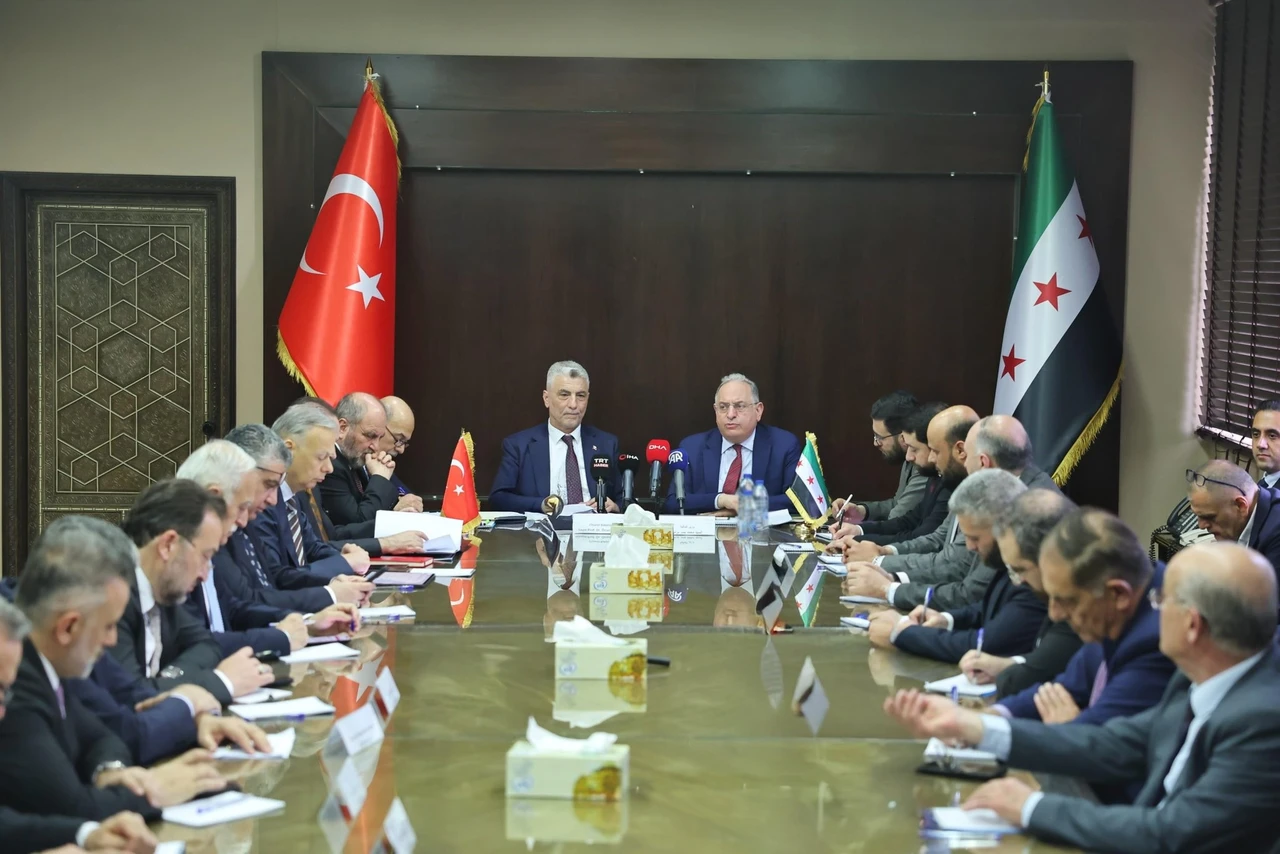Turkish textile manufacturers weigh cross-border move to retain Syrian workforce
 Syrian textile employees work in a textile workshop in Gaziantep, Türkiye on January 30, 2025. (AFP Photo)
Syrian textile employees work in a textile workshop in Gaziantep, Türkiye on January 30, 2025. (AFP Photo)
In a strategic pivot that could reshape regional manufacturing, Turkish textile manufacturers are exploring the possibility of following their Syrian workers across the border, signaling a potential new phase in Turkish-Syrian economic relations.
As Syrian workers contemplate returning home following Bashar al-Assad’s overthrow, Turkish businesses are developing contingency plans that could transform a potential crisis into an opportunity for cross-border expansion.
“We’ve become very close with our Syrian workers,” Ali Gozcu, who runs ALG Tekstil in Gaziantep, told Agence-France Presse (AFP). His company, where 70% of the workforce is Syrian, is already considering an ambitious adaptation strategy. “If need be, we will open workshops in Syria for them and will continue our production there,” he said.

This business adaptation reflects the deep integration of Syrian labor into Türkiye’s textile sector. In Gaziantep’s Unal district, where textile firms line the run-down streets, the dependency is particularly stark. “All of the workers here are Syrian,” Yusuf Samil Kandil, a quality controller at Beni Giy clothing, told AFP, expressing concern about rising production costs if workers depart.
The potential for cross-border business development has caught the attention of international observers. Kemal Kirisci, a migration expert at the Brookings Institution, told AFP that Syria presents significant long-term economic potential. “Syria is a very promising place in the long run. Ideally, we could have a very porous economic border so people could move back and forth,” he said.
This vision of economic integration isn’t entirely new to the region. Before the Syrian war erupted in 2011, the area benefited from “ShamGen,” a free trade and movement agreement between Syria, Jordan, Lebanon, and Türkiye, modeled after the European Union’s Schengen zone. According to Kirisci, these economic ties “could be revived very easily—but the key lies with this new regime.”
The stakes are particularly high for Türkiye’s textile industry, which ranks as the world’s sixth-largest manufacturer. The sector is concentrated in southern regions that host the majority of Türkiye’s approximately 2.9 million Syrian migrants.
Nearly a million Syrians in Turkish workforce
While government figures show only about 100,000 Syrians have official work permits, experts estimate that nearly one million Syrians are active in the Turkish economy, predominantly in labor-intensive sectors like textiles, manufacturing, and construction.

However, the transition may not be immediate. Professor Murat Erdogan, whose Syrians Barometer survey tracks migration patterns, told AFP that despite initial excitement about Assad’s fall, a mass exodus is unlikely.
“A maximum of 20% of them will return and that will take a lot of time,” he said, noting that many Syrians have established lives in Türkiye, with over 970,000 Syrian babies born there in the past 12 years.
The measured pace of returns so far supports this assessment. Interior Ministry figures show just over 81,000 people have returned, with more expected during the upcoming Eid al-Adha holiday. This gradual transition could provide businesses with the time needed to establish operations across the border.
For workers like Zekeriya Bozo, a 55-year-old employee at ALG Tekstil, the future holds both opportunity and uncertainty. “If Syrians leave, there won’t be anyone left to work,” he told AFP while expressing his own desire to “create a new business there.”
The potential revival of regional economic integration through cross-border business operations could create what Kirisci describes as a “win for Turkish industry, for the economy, a win for Syria and the new regime.” However, the success of such initiatives will largely depend on the stability and policies of Syria’s new government.



